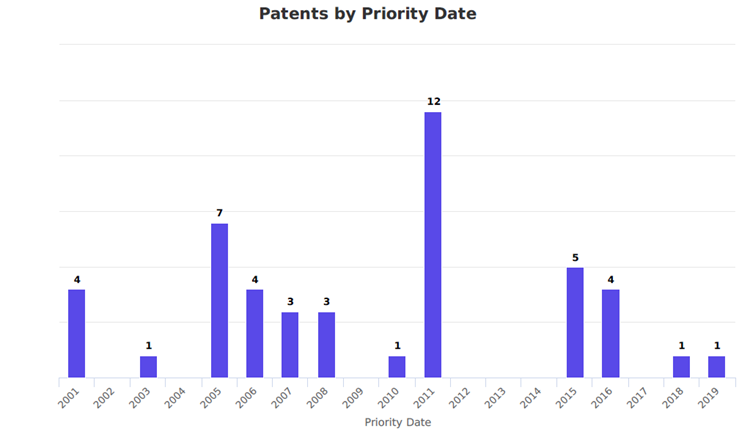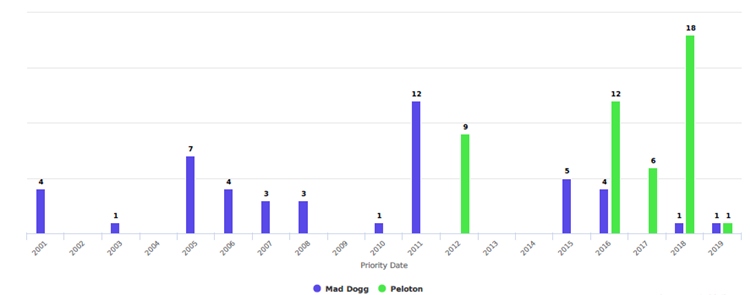Highlights
Businesses should consider having a long strategic view of their IP, with an eye toward open applications and the competition
A portfolio analysis of the parties involved in a complaint filed in the U.S. District Court for the Eastern District of Texas illustrates the need for businesses to file, curate and keep coverage of their patents
Developing a long-term patent strategy for startups can be critical
Many startups file patents when they launch. However, many startups end up cutting these patents early on, as they experience mounting costs of prosecution, maintenance and curation, and as other business priorities present themselves.
In a case filed recently, a comparison of the respective portfolios shines a light on the importance of keeping a long-term patent strategy. This case was filed on Dec. 14 by Mad Dogg Athletics, Inc. (MDA), the inventor of Spinning® bikes, against Peloton Interactive for patent infringement in the U.S. District Court for the Eastern District of Texas.
While the merits of the case will reveal themselves in the court, the merits of a long-term IP strategy is more apparent (considering MDA and its intellectual property portfolio – which has run 30 years past their first invention). MDA was a first mover startup company, that has successfully done all of the following:
- Filed and curated an IP portfolio that was targeted and ready when needed
- Kept open applications from earlier patent families for later targeting or assertion
- Kept a rolling set of new matters and continuous improvements filed to maintain coverage of their latest innovation and relevance in their marketplace
- Actively targets competitor product lines in their claim coverage
MDA started its IP portfolio in 1992 with both design and utility filings that resulted in a starting portfolio of 11 matters. MDA then re-invested in patent filings, modestly in 2001, 2005-2008, and 2011, as shown by the active portfolio priority dates noted here:
By comparison, Peloton came later and also created its own portfolio achieving count parity with MDA. However, like many other industries, Peloton will struggle to overcome a first-mover company with a solid IP strategy.
It is rare to find clear examples to draw insights from, and this case creates a strong example for businesses to maintain their IP portfolios, even when they don’t have any immediate uses or benefits.
A startup IP strategy should be embraced by company leadership and financial executives not just left to its IP professionals. Businesses should consider taking the long strategic view with their IP by keeping open applications focused on their product and their competition.
Note: The two charts above were created by Barnes & Thornburg LLP.
For obtain more information, contact the Barnes & Thornburg attorney with whom you work or Mark Stignani at 612-367-8745 or mark.stignani@btlaw.com.
© 2020 Barnes & Thornburg LLP. All Rights Reserved. This page, and all information on it, is proprietary and the property of Barnes & Thornburg LLP. It may not be reproduced, in any form, without the express written consent of Barnes & Thornburg LLP.
This Barnes & Thornburg LLP publication should not be construed as legal advice or legal opinion on any specific facts or circumstances. The contents are intended for general informational purposes only, and you are urged to consult your own lawyer on any specific legal questions you may have concerning your situation.













/Passle/6488d4630e7e25c9ac9f834a/SearchServiceImages/2024-11-14-13-11-27-495-6735f6fff42d6cc59c8ec5c1.jpg)
/Passle/6488d4630e7e25c9ac9f834a/SearchServiceImages/2024-11-11-22-02-38-042-67327efe31216b909e6ea644.jpg)
